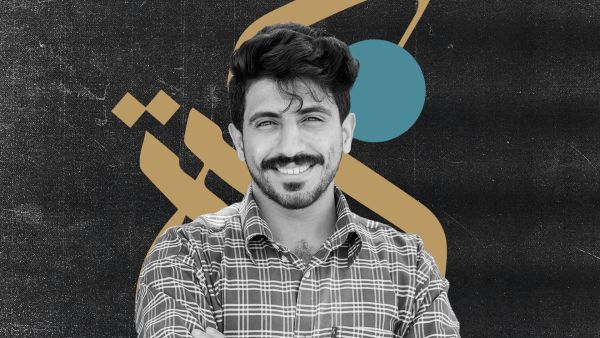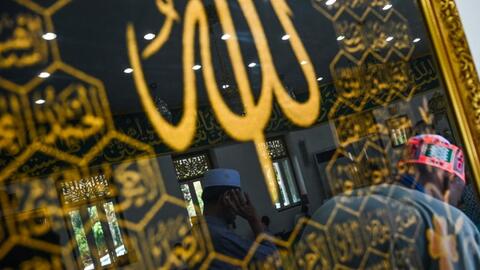With the announcement of UNESCO regarding a number of traditional and folk art forms being recognized as intangible cultural heritage, we discovered a number of amazing initiatives in the region honoring these great traditions and arts. One of them is Kenda platform for teaching the art of Arabic calligraphy.
Kenda platform was established at the beginning of 2019 by Engineer Mo'men Al-Hamed (a civil engineer who graduated in 2020 from the University of Jordan. During the study period he was a teacher in the field of art and calligraphy. Al Hamed also worked at the Innovation and Entrepreneurship Center at the University of Jordan for a period of 3 years.
Al Bawaba's Editor in Chief Ruba Hattar interviewed Eng. Mo'min Al Hamed to learn more about his interesting initiative.
Al Bawaba: Can you tell us what attracted you first to Arabic calligraphy and how it became your main passion especially that you are an engineer?
Mo'min: The story started simply when my family became known for writing beautifully and I was the only one with very poor handwriting that I got the minimum mark at the university so I decided to improve my handwriting. When I was learning to write, I faced several problems, and after a year I decided to learn Arabic calligraphy. I learned that I have a great passion for learning the art of Arabic calligraphy, as I learned several script forms within a short period of time and it was self-teaching. Shortly after, I won the second place in 2018 in The Arabic Calligraphy Competition of the Arabic Language Academy, and then I realized that I am not the only one who suffers from understanding his calligraphy, so I started Kenda to teach university students and ultimately solve the problem for thousands of people .
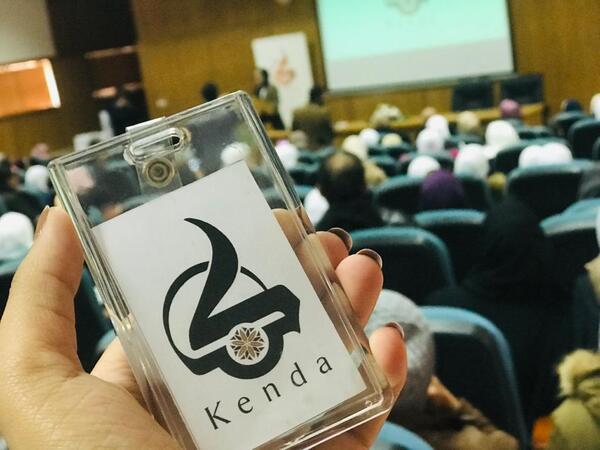
Al Bawaba: Is there a story behind using the name Kenda for your initiative?
Mo'min: Kenda is a Arabic tribe that was famous for the art of calligraphy and cultural identity, and we aspire to revive the art of Arabic calligraphy using modern technology. The story of the name Kenda began after continuous research, which involved 7 months of reading in detail about civilization and history.
Al Bawaba: Can you tell us about your calligraphy teaching experience in Jordan and what kind of technology you use?
Mo'min: We gave courses in Arabic calligraphy at the University of Jordan and several governmental and private agencies, including the Crown Prince Foundation (the Z initiative - the We platform - the Ideas Factory) in the first phase. In the second phase, school students, of a 100 public and private schools, were taught the basics of Arabic calligraphy, including Al-Ahlia and Al-Mutran High Schools, International Skills schools, and UNICEF-affiliated schools. The total number of students who have been educated in universities and schools has reached 2,000.
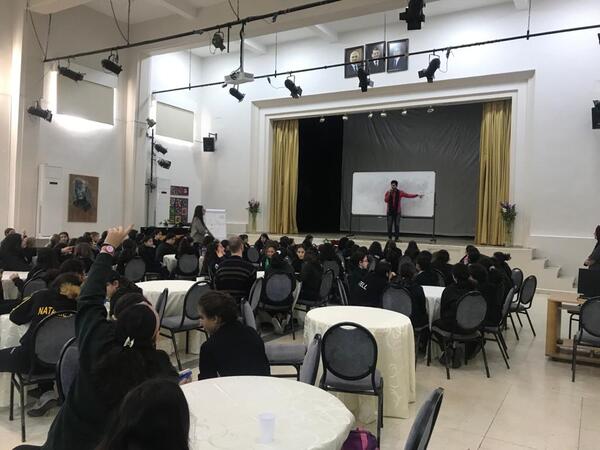
Mo'min: In the first stage, education was carried out in the traditional way, using inks and pens for Arabic calligraphy and papers, but in the second stage, the technology of the Fourth Industrial Revolution, such as a 3D printer and a laser machine, were integrated during the learning stage and the production of Arab-style prints that express our authentic Arab culture and civilization. Then our website was created, and we started announcing our tailored courses to teach Arabic calligraphy by the experienced artist of Arabic calligraphy, including Mr. Yaqoub Abu Shaouria - Mr. Muhannad Al-Qaisi - Mr. Awad Abdullah.
Al Bawaba: What does the recent UNESCO declaration of Arabic calligraphy as an intangible heritage mean for Kenda locally and internationally?
Mo'min: We believe that Arabic calligraphy is a unique and abstract art that is distinguished from other arts, and the Arabic language is the only language that depends primarily on the connection of letters in addition to the presence of several types of fonts that are characterized by a unique structure. This is a great incentive for us to move forward towards the future and to support and enhance the art of Arabic calligraphy with all we can.
Al Bawaba: Does the hybrid teaching method currently used in schools because of COVID create a challenge for your initiative? If so, how do you overcome that?
Mo'min: During the COVID pandemic, we did not stop teaching in schools and even institutions, using our website and Zoom software to teach students live and directly in and outside Jordan; so it was another form of operating for us.
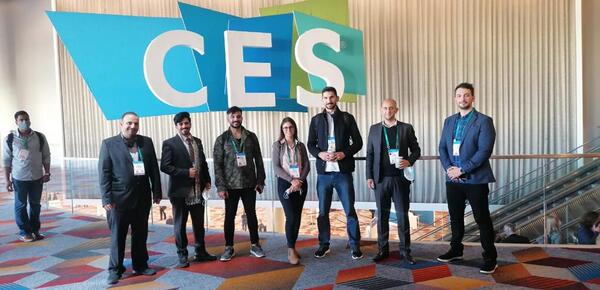
Al Bawaba: Can you tell us about your recent participation at CES, what that meant for you and what were the highlights and takeaways from this great global event for you?
Mo'min: I was nominated to represent Kenda by the US Embassy in Amman at this year's edition of CES, the largest technical conference in the world, as Kenda was ranked as one of the best four startup companies in the Orange Telecom Artificial Intelligence Incubator. It was a great opportunity for Kenda in several respects, the first of which was that the world is deeply and largely oriented towards the use of artificial intelligence in a comprehensive way, and that development and modernization is a duty, so it reflected greatly on Kenda's vision around the use of artificial intelligence in teaching as its next step.
Al Bawaba: How do you see your initiative enriching the job market? Will it create employment opportunities for youth?
Mo'min: Kenda, when I started, created job opportunities for many Arabic calligraphy teachers and young people in the field of digital design for the art of Arabic calligraphy and is continuing to do so. We currently have a development team of four: myself, Tamara Al Masri, Mohammad Abu El Haj and Eng. Mohammad Al Barham. As well as the design team of nine: Eng. Tabarak Helalat, Maysaa Al Thaher, Eng. Fatena Al Najjar, Dr. Haneen Bani Hani, Ahmad Khater, Eng. Tala Al Khateeb, Ehsan Al Neemat, Duha Al Zaben and Sara Nizar. In addition to the great teachers mentioned earlier.
Al Bawaba: In your opinion, what is the biggest challenge the Arabic language is facing in our communities especially among the youth?
Mo'min: The biggest challenge we had at the beginning and until now has been the dissemination and promotion of the culture of appreciating the art of Arabic calligraphy. Students in schools and universities have become less appreciative of Arabic language, especially in writing. Our children are currently in dire need to learn to write in Arabic, as writing helps strengthen ties to our heritage and can improve children’s focus and develop their skills and mental and physical abilities and this is what we strive for. Another challenge has been the financial support needed in the field of development and the introduction of artificial intelligence and dissemination of the culture of the art of Arabic calligraphy in the correct manner.
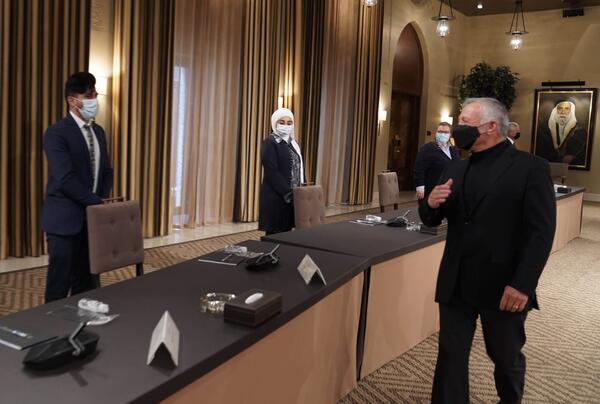
Al Bawaba: What are the next steps for Kenda?
Mo'min: We aspire to create an application based on artificial intelligence to teach the Arabic language and enhance the skills of writing, listening, speaking, reading and even dictation for our children and students in schools.
You can find out more about Kenda via these social media links: Facebook, Instagram, Twitter and LinkedIn.


